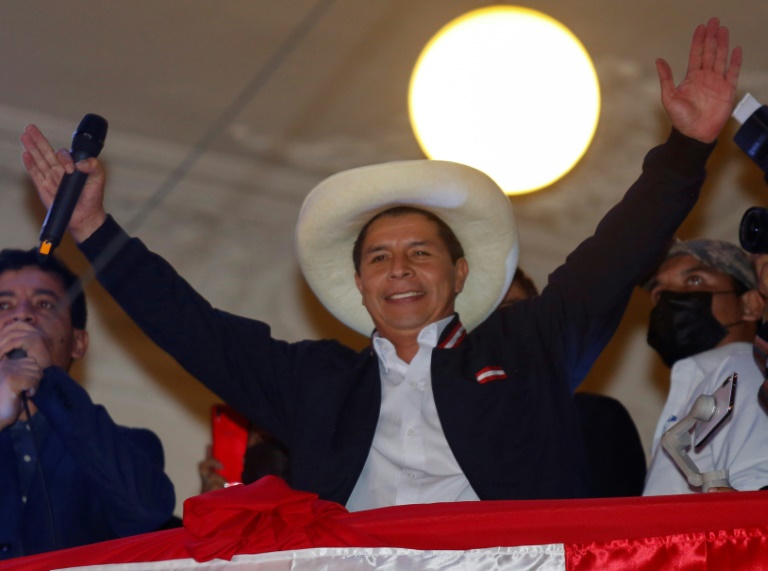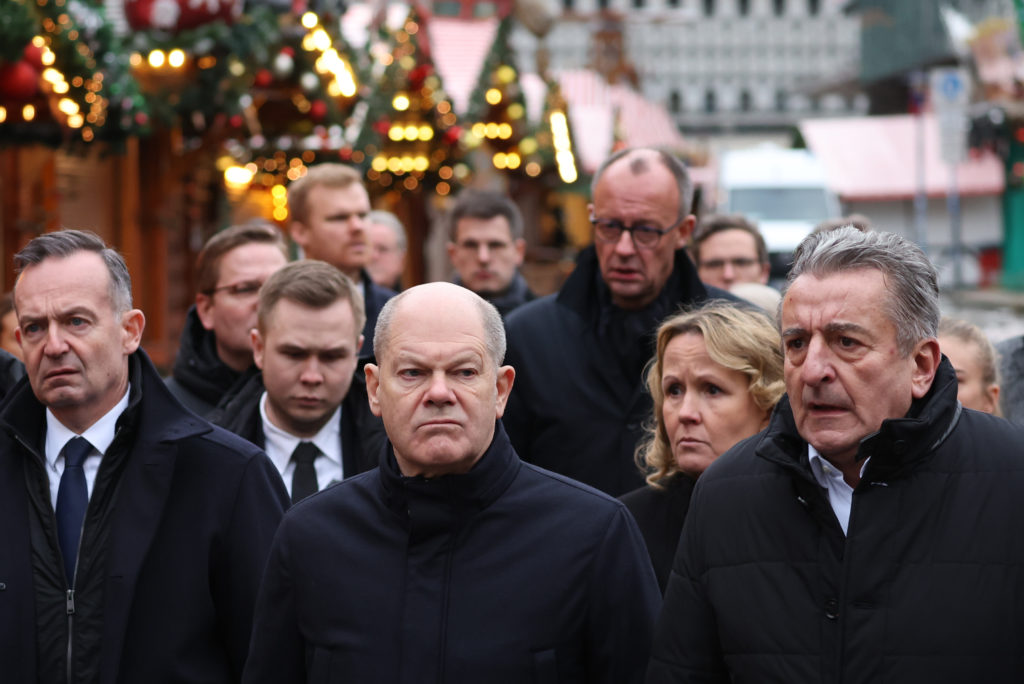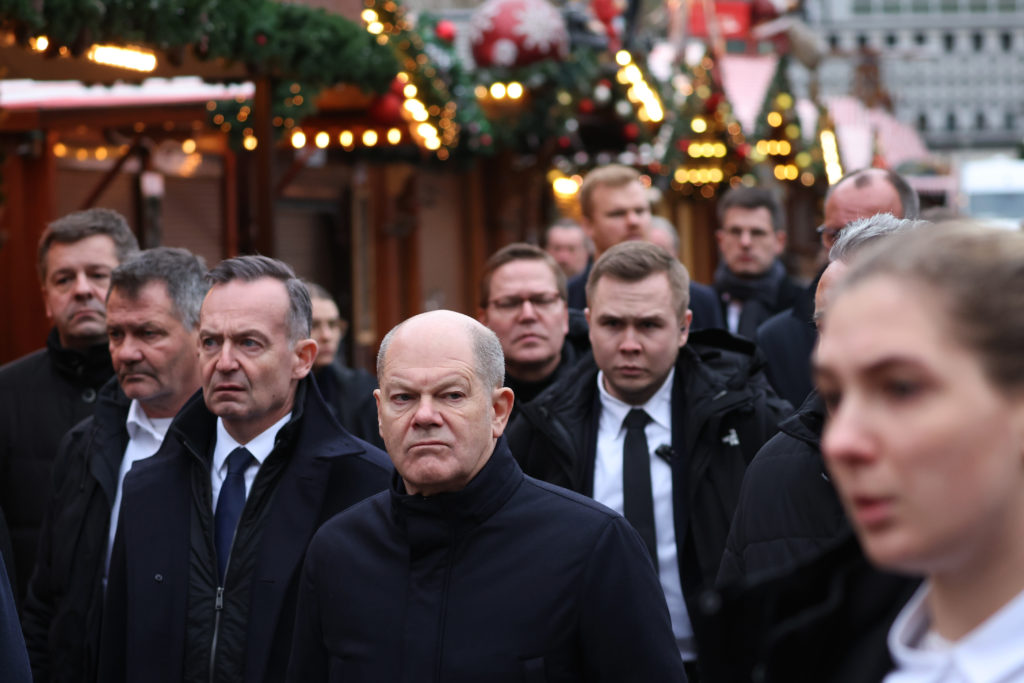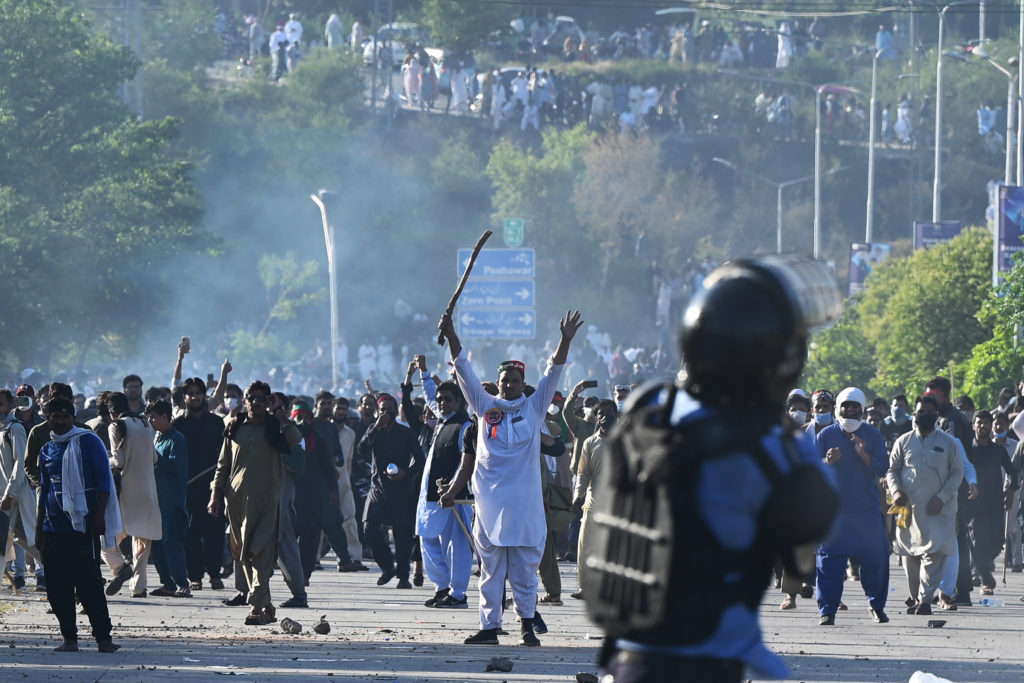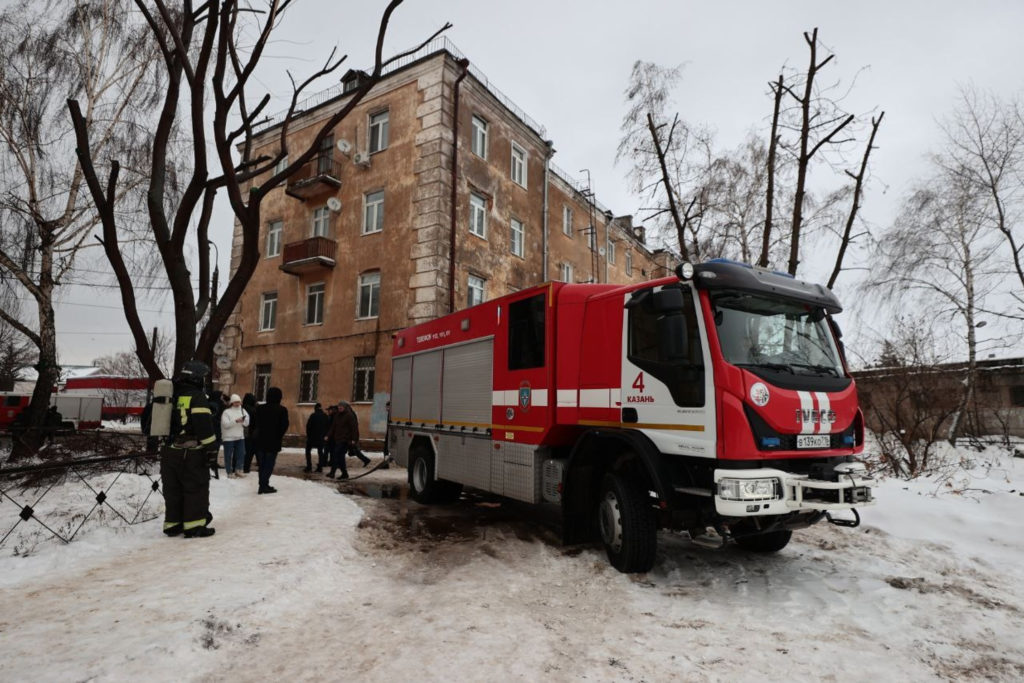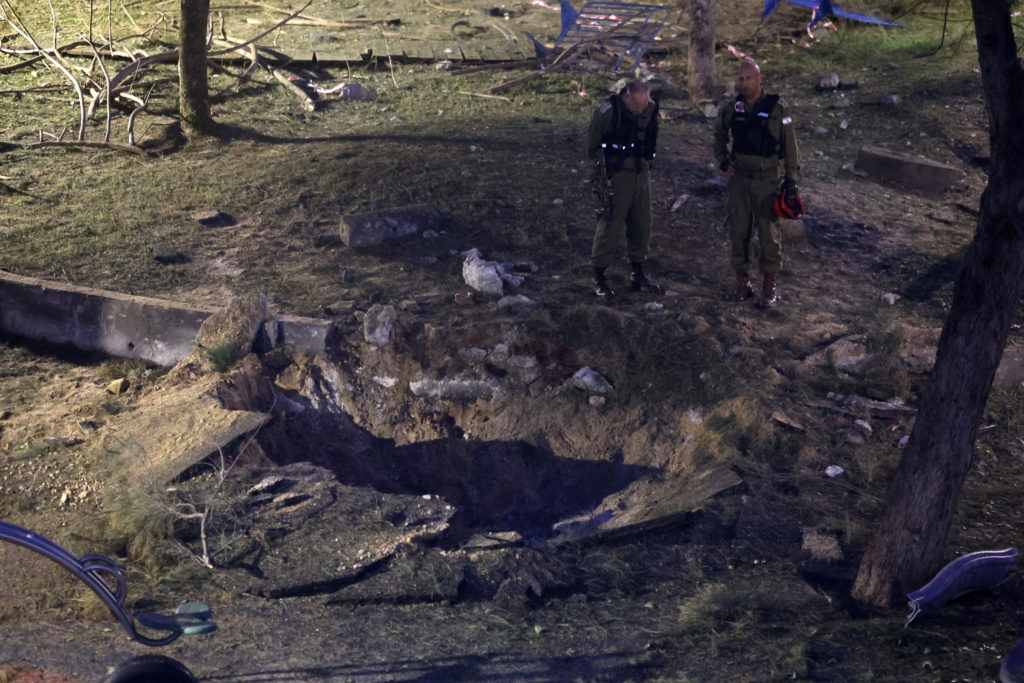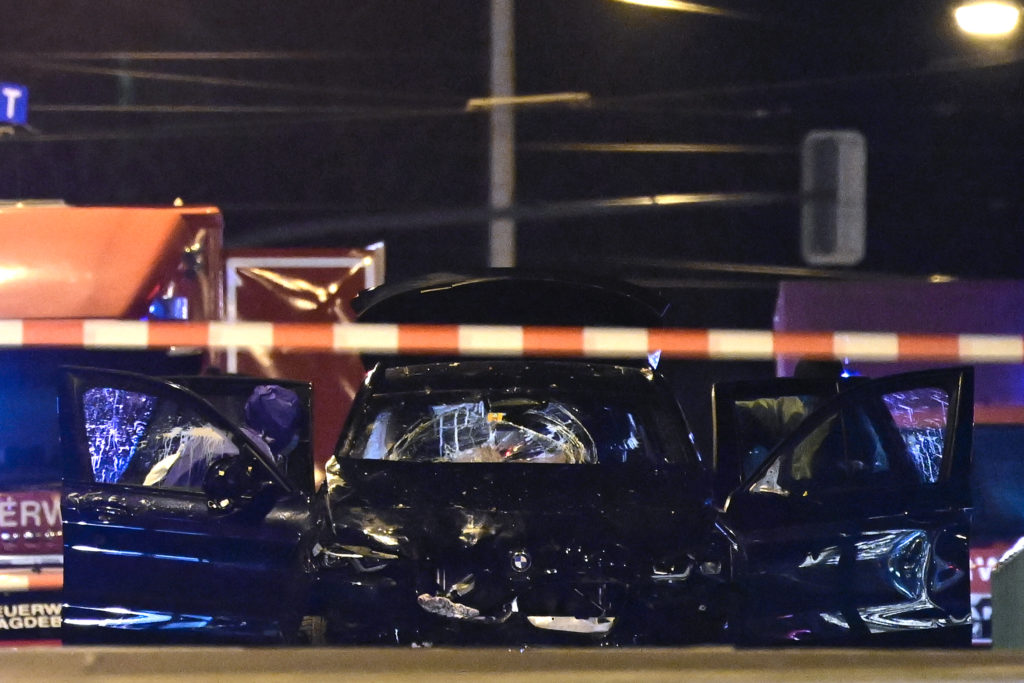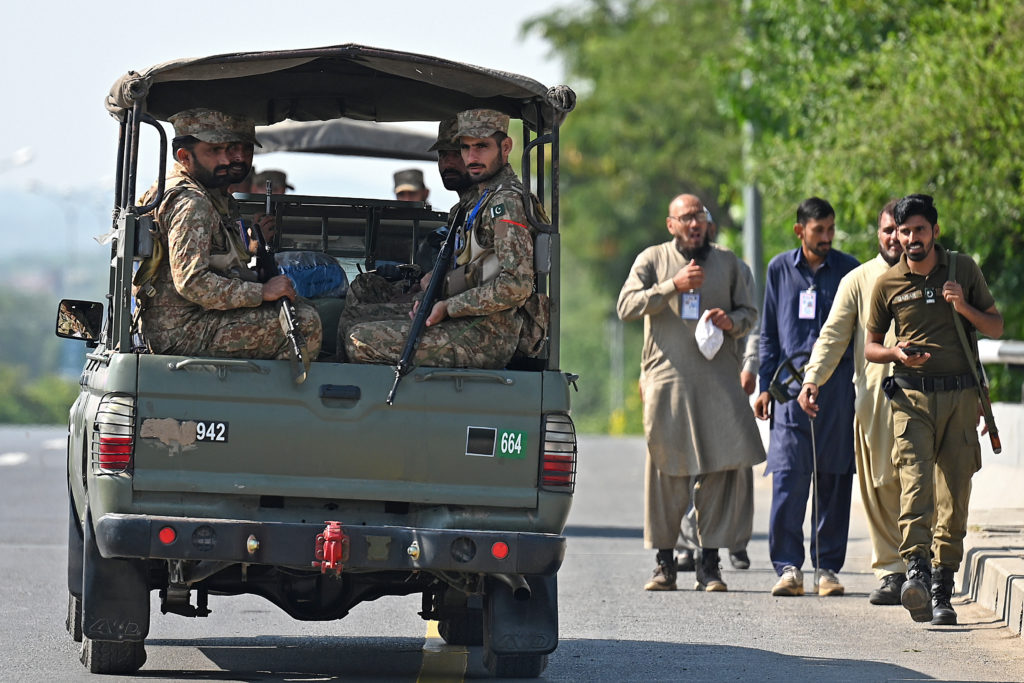Leftist Pedro Castillo is to be sworn in as Peru’s president Wednesday with a full inbox: tame the coronavirus epidemic, reactivate a flagging economy, and put paid to years of political turmoil.
The rural school teacher becomes Peru’s fifth president in three years, and has vowed to upend a quarter century of neo-liberal government.
He was declared the victor on July 19, more than six weeks after a runoff vote against rightwing rival Keiko Fujimori, whose fraud claims were then reviewed by an electoral jury.
Three days of ceremony are planned, starting with the swearing-in Wednesday on Peru’s independence day — an event that will be attended by Spanish King Felipe VI, six Latin American leaders, former Bolivian President Evo Morales, and the United States education secretary among the guests.
A military parade is planned for Lima on Friday.
Castillo, 51, becomes Peru’s first president in decades with no ties to the country’s political or economic elite.
He has promised reform to ensure there are “No more poor people in a rich country,” but has softened his initial campaign talk of nationalization.
Castillo’s Free Peru party does not enjoy a majority in a fragmented congress, holding 37 of the 130 seats. Fujimori’s Popular Force party has 24.
– ‘We will not expropriate’ –
The country has been hard hit by the coronavirus epidemic. With nearly 200,000 deaths among its 32 million population, it has the world’s highest reported mortality rate.
An extended pandemic lockdown in 2020 is blamed for the loss of millions of jobs and dumping the country into recession. GDP dropped more than 11 percent.
As his chief economic adviser, Castillo has appointed World Bank economist Pedro Francke, seen as a moderating influence on his boss, who had initially said Peru’s mining and hydrocarbon riches — a mainstay of the economy — “must be nationalized.”
Francke vowed, in an interview with AFP, that “we will not expropriate, we will not nationalize, we will not impose generalized price controls, we will not make any exchange control that prevents you from buying and selling dollars or taking dollars out of the country.”
Last month, the president-elect himself declared that “we are not communists, nobody has come to destabilize this country.”
It is widely hoped Castillo will bring an end to years of political upheaval in Peru.
A series of corruption scandals culminated in three different presidents in office in a single week last November.
Seven of the country’s last 10 leaders have either been convicted or are under investigation for graft, and Fujimori herself faces an imminent corruption trial for allegedly taking illicit campaign funding for two previous presidential bids.
– President of all Peruvians –
The election campaign has also been deeply polarizing, with often vehement public support on both sides of the political spectrum for the final two contenders.
“Castillo must rapidly position himself as a president of all Peruvians and not as a president of half of Peruvians,” political analyst Jessica Smith told AFP.
Castillo has yet to name a cabinet.
On Monday, the president-elect received congratulations in a call with US Secretary of State Antony Blinken who “reinforced our shared commitment to promoting inclusive economic prosperity.”

